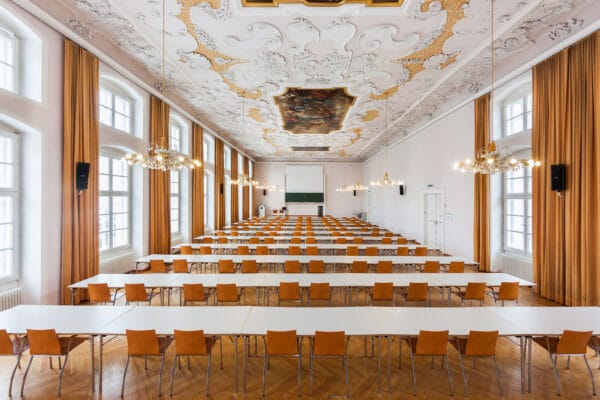
NAME:
Theologie - MS
BUILDING:
Theologie
FLOOR:
2
TYPE:
Lecture Room
CAPACITY:
108
ACCESS:
Only Participants
EQUIPMENT:
Beamer, PC, WLAN (Eduroam), Overhead, Flipchart, Blackboard, Handicapped Accessible, LAN, Microphones, Sound System
Established in 1885, Banff National Park in Alberta, Canada is one of the world’s oldest and most famous mountain destinations and protected areas. It lies in the geographic center of the Yellowstone to Yukon region, the most intact large mountain ecosystem on the planet. Despite this large-landscape success, the Bow River Valley that runs through the heart of Banff National Park and beyond has lost 85% of its historical connectivity for grizzly bears and wolves, has dramatically shrunk and altered wildlife movement paths, and has been described in the academic literature as the most developed landscape on Earth still home to grizzly bears for over 20 years. Banff National Park today faces considerable visitation and development pressures internally and from neighbouring jurisdictions outside of the national park management system, set within a social context that includes a severe regional housing crisis, dependence on a vulnerable migrant labour force, and both local and national movements for truth and reconciliation with Indigenous Peoples. This presentation offers a non-profit practitioner’s perspective on these complex pressures impacting Banff National Park with particular focus on real estate and resort development in Canmore, a town within the Bow River Valley immediately east of the park boundary. This presentation will highlight some of the tensions and contradictions between large-landscape conservation and local social, political, legal and economic conditions to argue the importance of transdisciplinary and community collaboration for achieving mountain conservation goals.

We and use cookies and other tracking technologies to improve your experience on our website. We may store and/or access information on a device and process personal data, such as your IP address and browsing data, for personalised advertising and content, advertising and content measurement, audience research and services development. Additionally, we may utilize precise geolocation data and identification through device scanning.
Please note that your consent will be valid across all our subdomains. You can change or withdraw your consent at any time by clicking the “Consent Preferences” button at the bottom of your screen. We respect your choices and are committed to providing you with a transparent and secure browsing experience.